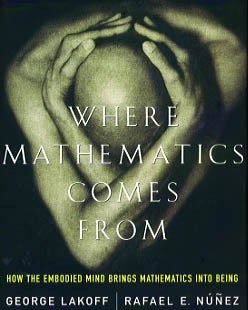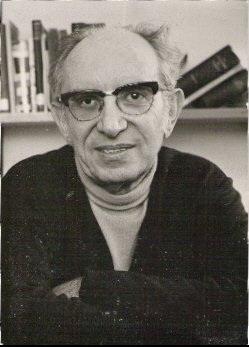External links
- Michael van Lambalgen's web page
- Prof. dr. M. van Lambalgen, 1954 - at the University of Amsterdam Album Academicum website
Michiel van Lambalgen (born 6 November 1954, Krimpen aan den IJssel) is a professor of Logic and Cognitive Science at the Institute for Logic, Language and Computation and the Department of Philosophy, University of Amsterdam in the Netherlands. [1]
In the 1980s van Lambalgen did research in randomness, [2] and in set theory, where he developed a theory with a randomness predicateR(x) which had important consequences for Gödel's program of finding more primitive axioms from which statements like Axiom of Choice could be derived [3] . After some time felt the subject was "too abstract"[ citation needed ]. Then in the 1990s he moved to artificial intelligence, where he picked up the methodology for studying cognition. In 1999 he spent a sabbatical with Keith Stenning at the University of Edinburgh where he made contributions to the psychology of reasoning. [4] His research interests include philosophy and the foundations of mathematics, reasoning with uncertainty, the psychology of reasoning, and the cognitive semantics of natural language. [5]
In the philosophy of mathematics, intuitionism, or neointuitionism, is an approach where mathematics is considered to be purely the result of the constructive mental activity of humans rather than the discovery of fundamental principles claimed to exist in an objective reality. That is, logic and mathematics are not considered analytic activities wherein deep properties of objective reality are revealed and applied, but are instead considered the application of internally consistent methods used to realize more complex mental constructs, regardless of their possible independent existence in an objective reality.
Mathematical logic is the study of formal logic within mathematics. Major subareas include model theory, proof theory, set theory, and recursion theory. Research in mathematical logic commonly addresses the mathematical properties of formal systems of logic such as their expressive or deductive power. However, it can also include uses of logic to characterize correct mathematical reasoning or to establish foundations of mathematics.

Willard Van Orman Quine was an American philosopher and logician in the analytic tradition, recognized as "one of the most influential philosophers of the twentieth century". He served as the Edgar Pierce Chair of Philosophy at Harvard University from 1956 to 1978.

Where Mathematics Comes From: How the Embodied Mind Brings Mathematics into Being is a book by George Lakoff, a cognitive linguist, and Rafael E. Núñez, a psychologist. Published in 2000, WMCF seeks to found a cognitive science of mathematics, a theory of embodied mathematics based on conceptual metaphor.
The philosophy of mathematics is the branch of philosophy that studies the assumptions, foundations, and implications of mathematics. It aims to understand the nature and methods of mathematics, and find out the place of mathematics in people's lives.
The history of logic deals with the study of the development of the science of valid inference (logic). Formal logics developed in ancient times in India, China, and Greece. Greek methods, particularly Aristotelian logic as found in the Organon, found wide application and acceptance in Western science and mathematics for millennia. The Stoics, especially Chrysippus, began the development of predicate logic.
Deductive reasoning is the mental process of drawing deductive inferences. An inference is deductively valid if its conclusion follows logically from its premises, i.e. it is impossible for the premises to be true and the conclusion to be false.
Foundations of mathematics is the study of the philosophical and logical and/or algorithmic basis of mathematics, or, in a broader sense, the mathematical investigation of what underlies the philosophical theories concerning the nature of mathematics. In this latter sense, the distinction between foundations of mathematics and philosophy of mathematics turns out to be vague. Foundations of mathematics can be conceived as the study of the basic mathematical concepts and how they form hierarchies of more complex structures and concepts, especially the fundamentally important structures that form the language of mathematics also called metamathematical concepts, with an eye to the philosophical aspects and the unity of mathematics. The search for foundations of mathematics is a central question of the philosophy of mathematics; the abstract nature of mathematical objects presents special philosophical challenges.

Metamathematics is the study of mathematics itself using mathematical methods. This study produces metatheories, which are mathematical theories about other mathematical theories. Emphasis on metamathematics owes itself to David Hilbert's attempt to secure the foundations of mathematics in the early part of the 20th century. Metamathematics provides "a rigorous mathematical technique for investigating a great variety of foundation problems for mathematics and logic". An important feature of metamathematics is its emphasis on differentiating between reasoning from inside a system and from outside a system. An informal illustration of this is categorizing the proposition "2+2=4" as belonging to mathematics while categorizing the proposition "'2+2=4' is valid" as belonging to metamathematics.
Inferences are steps in reasoning, moving from premises to logical consequences; etymologically, the word infer means to "carry forward". Inference is theoretically traditionally divided into deduction and induction, a distinction that in Europe dates at least to Aristotle. Deduction is inference deriving logical conclusions from premises known or assumed to be true, with the laws of valid inference being studied in logic. Induction is inference from particular evidence to a universal conclusion. A third type of inference is sometimes distinguished, notably by Charles Sanders Peirce, contradistinguishing abduction from induction.

Richard Merritt Montague was an American mathematician and philosopher who made contributions to mathematical logic and the philosophy of language. He is known for proposing Montague grammar to formalize the semantics of natural language. As a student of Alfred Tarski, he also contributed early developments to axiomatic set theory (ZFC). For the latter half of his life, he was a professor at the University of California, Los Angeles until his early death, believed to be a homicide, at age 40.

Yehoshua Bar-Hillel was an Israeli philosopher, mathematician, and linguist. He was a pioneer in the fields of machine translation and formal linguistics.

A mental model is an internal representation (model) of external reality: that is, a way of representing reality within one's mind. Such models are hypothesized to play a major role in cognition, reasoning and decision-making. The term for this concept was coined in 1943 by Kenneth Craik, who suggested that the mind constructs "small-scale models" of reality that it uses to anticipate events.
The Lakatos Award is given annually for an outstanding contribution to the philosophy of science, widely interpreted. The contribution must be in the form of a monograph, co-authored or single-authored, and published in English during the previous six years. The award is in memory of the influential Hungarian philosopher of science and mathematics Imre Lakatos, whose tenure as Professor of Logic at the London School of Economics and Political Science (LSE) was cut short by his early and unexpected death. While administered by an international management committee organised from the LSE, it is independent of the LSE Department of Philosophy, Logic, and Scientific Method, with many of the committee's members being academics from other institutions. The value of the award, which has been endowed by the Latsis Foundation, is £10,000, and to take it up a successful candidate must visit the LSE and deliver a public lecture.
The Institute for Logic, Language and Computation (ILLC) is a research institute of the University of Amsterdam, in which researchers from the Faculty of Science and the Faculty of Humanities collaborate. The ILLC's central research area is the study of fundamental principles of encoding, transmission and comprehension of information. Emphasis is on natural and formal languages, but other information carriers, such as images and music, are studied as well.
Keith Stenning is a cognitive scientist and Honorary Professor at the University of Edinburgh in Scotland, UK. He attended High Wycombe Royal Grammar School (U.K.) from 1959 to 1965, where he won an Open Scholarship in Natural Sciences at Trinity College, Oxford.
Knowledge retrieval seeks to return information in a structured form, consistent with human cognitive processes as opposed to simple lists of data items. It draws on a range of fields including epistemology, cognitive psychology, cognitive neuroscience, logic and inference, machine learning and knowledge discovery, linguistics, and information technology.
The psychology of reasoning is the study of how people reason, often broadly defined as the process of drawing conclusions to inform how people solve problems and make decisions. It overlaps with psychology, philosophy, linguistics, cognitive science, artificial intelligence, logic, and probability theory.
Quantum cognition is an emerging field which applies the mathematical formalism of quantum theory to model cognitive phenomena such as information processing by the human brain, language, decision making, human memory, concepts and conceptual reasoning, human judgment, and perception. The field clearly distinguishes itself from the quantum mind as it is not reliant on the hypothesis that there is something micro-physical quantum-mechanical about the brain. Quantum cognition is based on the quantum-like paradigm or generalized quantum paradigm or quantum structure paradigm that information processing by complex systems such as the brain, taking into account contextual dependence of information and probabilistic reasoning, can be mathematically described in the framework of quantum information and quantum probability theory.